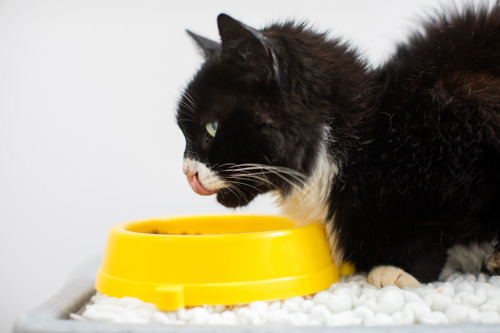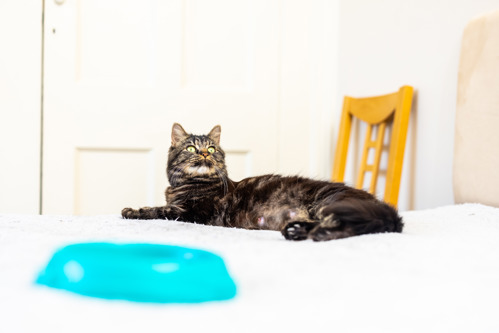Should cats take probiotics? Find out how cat probiotics work and when you should give them to your cat
Probiotics are live bacteria, often described as ‘good bacteria’ or ‘friendly bacteria’. They may help to restore the natural balance of bacteria found in the gut. Cats have millions of bacteria in their gut, like humans do. These help to support digestion and promote a healthy immune system. This gut bacteria can become disrupted by illness (particularly digestive disorders) or medication. Probiotics are thought to help top up the good bacteria and reduce the number of harmful bacteria to restore a healthy balance.

How do I know if my cat needs probiotics?
Your vet may tell you to give your cat or kitten probiotics if they have recently had:
- diarrhoea
- a course of antibiotics
It is best to only give your cat probiotics if your vet has recommended them. If your cat has diarrhoea or vomiting, then take them to the vet for a check-up.
What are the best probiotics for cats?
Probiotics are available in:
- tablets or capsules
- powders
- pastes
Your vet will be able to give you advice on the best probiotics for your cat. They can also tell you how often you should give your cat probiotics. Cats should not be given human probiotics. They have different gut bacteria to us and need probiotics specifically designed for cats. Some probiotics are suitable for both dogs and cats. These can be given to your cat if recommended by your vet.
Is yogurt a good probiotic for cats?
Many cats are lactose intolerant. This means they are allergic to dairy products such as yoghurt. Giving your cat a probiotic yoghurt could upset their stomach and cause digestive issues. If you’re giving them probiotics because they already have a digestive disorder, yoghurt could make the problem worse. Stick to giving them probiotics meant for cats.

What are the side effects of probiotics?
Probiotics designed for cats are safe and often have positive results. Some can even help to reduce diarrhoea and sooth the guts. While probiotics don’t work in every scenario, they won’t usually have any negative side effects for your cat.
Do probiotics help cats with sensitive stomachs?
A ‘sensitive stomach’ can be a sign of different conditions. Probiotics help to improve intestinal health. They do not directly help with stomach issues. If your cat has a sensitive stomach then you should speak to your vet. They can try to find the underlying cause and discuss suitable treatments with you. Probiotics can be used to help treat inflammatory bowel disease (IBD) in cats, alongside other treatments such as dietary therapy and anti-inflammatories. They can also be used to restore a healthy balance of gut bacteria in cats with food allergies.
How can I improve my cat’s gut health?
- Feed a suitable diet. Feed your cat a good quality, complete cat food. It should say ‘complete’ on the packaging. Make sure it is suitable for their life stage. Your vet will tell you if they think your cat needs a special diet or any probiotics.
- Keep them hydrated. Make sure your cat has plenty of fresh water to drink throughout the day. Place their water bowl away from the food bowl to encourage them to drink more.
- Avoid human foods. Some human foods, such as dairy products, could cause digestive issues. Some, such as chocolate, can even be poisonous.
- Make changes gradually. If you need to change your cat’s diet, do this slowly. Any sudden changes could upset their stomach. Feed a little of the new food alongside their current food. Then gradually increase the amount of the new food and reduce the amount of the old food over several days.



